Perfect for a big property with a gigabit connection.
The Netgear Nighthawk MK83 is a wireless mesh system with a router and two satellite extenders. This system stands above dual-band solutions like the older Nighthawk MK62 and Eero 6, thanks to a third Wi-Fi band that can keep your connection fast even when you're connected to a satellite. With a solid AX3600 Wi-Fi 6 connection, this router has plenty of speed for most homes, and if you've got a gigabit connection, you should be able to get most of that speed on your Wi-Fi 6 devices all over your home.
Adopting the Nighthawk name instead of Orbi, the MK83 comes in a compact black housing with a combination of glossy and matte black plastics. It's set up quickly and easily with the Nighthawk app and supports both Netgear's Armor security package and Smart Parental Controls. This Nighthawk mesh can match the features of any other kit on the market as long as you're willing to pay for it.
Netgear Nighthawk MK83
Bottom line: The Nighthawk MK83 is a mesh system with three nodes with coverage up to 6,750 square feet and AX3600 tri-band speeds. With a compact design and a good software package, this is a great kit for families looking to stay in control with parental controls and advanced security, as long as they're willing to pay a bit more for it.
The Good
- Fast tri-band AX3600 speeds
- Great coverage with two satellites
- Ethernet on every node
- Excellent parental controls are available
The Bad
- No 160MHz support for devices
- Netgear Armor is too expensive for most people
- Expansion limited to two satellite models
$400 at Amazon $500 at Best Buy $400 at Newegg
Netgear Nighthawk MK83: Price and availability
The Nighthawk MK83 is available in the U.S. and Canada for $499.99 and CA$599.99. It first became available in March of 2021 in the U.S. and can be found on sale as low as $400. Extra MS80 satellites come in at $199.99 each if you intend to expand your system. The system, by default, comes with two MS80 satellites and an MR80 router which is more than enough coverage for most homes.
Netgear Nighthawk MK83: What you'll like
The Netgear Nighthawk MK83 comes with three nodes, a router, and two satellites. Each unit is equipped with tri-band Wi-Fi 6 capabilities at AX3600 speeds. That breaks down to 600Mbps at 2.4GHz, 1201Mbps at 5GHz, and 1800Mbps at 5GHz. The faster 5GHz connection is dedicated to connecting the satellites with the remaining bands sharing device connection duty. Either way, this is one of the best Wi-Fi 6 mesh routers you can get.
This setup, like most of Netgear's mesh solutions, is geared towards consistency over top speed. Devices will connect to the network at a max of 1201Mbps on Wi-Fi 6 and 867Mbps on Wi-Fi 5. Using the fastest band for the mesh connection makes a lot of sense so that the mesh can handle a large number of satellites, each with dozens of connections.
This is all accomplished in a fairly compact housing measuring just over five inches on each side. While not the most compact mesh system around, the inclusion of dual Ethernet ports on the satellites with three on the router makes it very flexible for homes with wired devices. These nodes also have great coverage with 2,250 square feet per satellite. The entire system adds up to 6,750 square feet of coverage.
While the raw square feet figure is huge, keep in mind that things like walls, HVAC units, and appliances can severely impact your coverage, so plan to overbuy on your mesh system a bit. You'll be able to see your satellite's connection quality in the Nighthawk app, and the WiFi Analytics option in the app can help you properly position your satellites.
I tested this system with only one connected satellite, as my home isn't big enough to effectively use both. My internet connection is up to 940Mbps down, and this mesh didn't quite keep up with the full speed but got close enough that I didn't notice outside of a speed test. Settings are limited, so I couldn't separate the bands to test each individually. I cycled the wireless connection on each device in each location to allow the system to connect to the best possible node.
Nighthawk MK83 speed tests (80MHz at 5GHz):
| Location | Living room (main router) |
Front room (Node) |
Bathroom |
|---|---|---|---|
| Galaxy S21 Ultra | 544 Mbps 551 Mbps |
779 Mbps 679 Mbps |
608 Mbps 598 Mbps |
| Galaxy S20+ | 140 Mbps 531 Mbps |
709 Mbps 729 Mbps |
533 Mbps 534 Mbps |
| LG G8 (Wi-Fi 5) | 390 Mbps 412 Mbps |
345 Mbps 363 Mbps |
393 Mbps 429 Mbps |
For the most part, this connection was very fast. Oddly I found that my speeds connected to the node were higher than when I was right next to the main router. I believe this is due to less congestion in that part of my apartment. Using an Ethernet cable on the satellite produced results from 600Mbps to 900Mbps.
The Galaxy S20+ had one odd result at just 140Mbps. For this, the device was likely still connected to the 2.4GHz band before being moved over to 5GHz. All Netgear mesh systems use Smart Connect, which automatically chooses the best band for your device with a single Wi-Fi name and password. The device was properly assigned within a minute or two, so the system is working as intended.
The way Netgear builds its mesh systems is a bit different from its competitors in that each system has a single router with satellites. You can't swap them around and can't use routers as satellites.
Routers and satellites can't be swapped around, and you can't use routers as satellites.
In this package, the satellites have the same hardware specs as the main router save for one fewer Ethernet LAN port. Also, there are no USB ports anywhere on this kit. Satellites can connect through other satellites, so coverage works like most other mesh systems, but expansion isn't quite as simple. Netgear also has an MK84 package with three satellites and the option to purchase more separately.
One of the stand-out features of this system is Netgear's Smart Parental Controls. You can set broad controls for the entire network or set restrictions for specific family members.
Netgear's Smart Parental Controls are great. While the cost of $7.99 per month or $69.99 per year is a bit steep, this software has everything you expect with easy site blocking, scheduling with rewards, and great device controls.
Not only that, Netgear includes the My Time app for all compatible devices, allowing you to keep your parental controls active when your kid connects to another network or mobile data.
ProductName: What you won't like
As always, the Nighthawk software is functional and has plenty of features for most people. Still, it feels dated and oversimplified compared to something from Asus or TP-Link. While you can find most of what you want in a few taps, finding anything but the most basic settings is difficult. Furthermore, the Nighthawk app feels less polished than the competition.
Naturally, I completed all of my testing with the most up-to-date firmware and app version at the time of writing. During my testing, it wasn't possible to see the device list for a specific node. It also takes a long time to load certain elements like Netgear Armor's vulnerabilities page. This is on a fairly fast Galaxy S20+ as well. These minor issues will likely be ironed out in time with updates to the platform and app, but it feels out of place in such an expensive kit.
The Nighthawk software feels dated and oversimplified compared to the competition.
Netgear Armor is a quite impressive product under the hood with threat detection from Bitdefender and Bitdefender software included for your devices to protect you on the go. You also get notifications of new device connections. Armor provides protection from known scam sites, online attacks like DDoS, and can even prevent data from being sent over insecure connections. The problem is that it costs $70 per year and can't be billed monthly. Luckily, you get a 30-day trial to figure out if you want it.
For the price, this router could also stand to be a bit faster. There is no 160MHz support, and with one band fully dedicated to the mesh link, the MK83's nodes end up acting a lot more like AX1800 routers as far as your devices are concerned. That means a maximum connection speed of 1201Mbps on Wi-Fi 6 devices and 867Mbps on Wi-Fi 5. While this is fine for most people, you won't be making the most of faster devices like the Galaxy S21 Ultra or even a fast laptop like an Intel MacBook Pro.
One final thing to keep in mind before you buy this kit is expansion. While the included nodes will easily cover most homes, any further expansion can be a bit complicated. You can expand your mesh with either an MS80 satellite or an MS60. Both of these are part of the Wi-Fi 6 Nighthawk mesh line. Keep in mind that the MS60 is only a dual-band AX1800 satellite. You cannot, for example, buy two MK83 kits and use them together. You could use the two satellites, but you would be leaving one of the MR80 routers in the box.
Netgear Nighthawk MK83: Competition
The TP-Link Deco X68 is very close to the mk83 in terms of hardware. It has a tri-band AX3600 connection with a dedicated mesh link. With only two nodes in the package, it covers up to 5,500 square feet. The Deco mesh can be expanded with any other Deco node making it easy to expand your network coverage. TP-Link's free parental controls aren't as advanced as Netgear's but will be more than enough for most people. The Deco X68 is also cheap, coming in at just $280.
The Netgear Orbi RBK752 has been one of the best Wi-Fi 6 routers since it was released with a nice design and quick AX4200 speeds. This system comes with a single satellite covering up to 5,000 square feet. The Orbi app is nearly identical to the Nighthawk app and will perform very close to the MK83 in most situations. The Orbi has a faster mesh link speed at 2400Mbps allowing for greater expansion support.
The Asus ZenWiFi XT8 is quite a bit faster than the Nighthawk with an AX6600 connection at a similar price. Asus suggests a price of $450 for this two-pack covering up to 5,500 square feet. Asus makes expansion easy with any AiMesh compatible router, including more ZenWiFi nodes. Asus includes a solid parental control and security package for free for the product's life, making it a great value for families.
Netgear Nighthawk MK83: Should you buy it?
You should buy this if ...
- You need coverage for a large home
- You want fast Wi-Fi 6 speeds
- You need great parental control software
You shouldn't buy this if...
- You have a small home
- You want 2.4Gbps wireless speeds
- You need advanced controls
The Nighthawk MK83 system feels like one of Netgear's most complete consumer packages with a ton of great coverage, good speeds, tons of available software, and even a stylish design. With most new phones and computers using it, many people are already ready for Wi-Fi 6. This is a good fit for someone with a large home that wants good Wi-Fi 6 speed throughout. It's also a good fit for those that need advanced parental controls. Still, some will find the lack of multi-gig speed and lack of advanced controls to be too big of a compromise for the relatively high price of this kit.
The Nighthawk MK83 is fast with a ton of coverage, which is what most people look for when shopping for a new router. The AX3600 speeds are enough for most people, including those with gigabit connections. The 6,750 square feet of coverage will be enough for most homes as well. It's also worth mentioning that I didn't have a single moment of downtime that I noticed in my entire time testing this system.
Netgear Armor and Smart Parental Controls are a bit expensive and require you to sign up for a subscription, but the value is good if you do. Still, for many people, the free options available from the competition offer plenty of features. If you can overlook a few software issues with the Nighthawk app and the MK83's high price, you're in for a great experience.
Netgear Nighthawk MK83
Bottom line: With its three nodes covering up to 6,750 square feet and plenty of Wi-Fi 6 speed to keep up with a gigabit connection, the Nighthawk MK83 is a great value to a large family with a large home. Speaking of families, Netgear's Smart Parental Controls are fantastic, even if they come with a monthly fee to use.

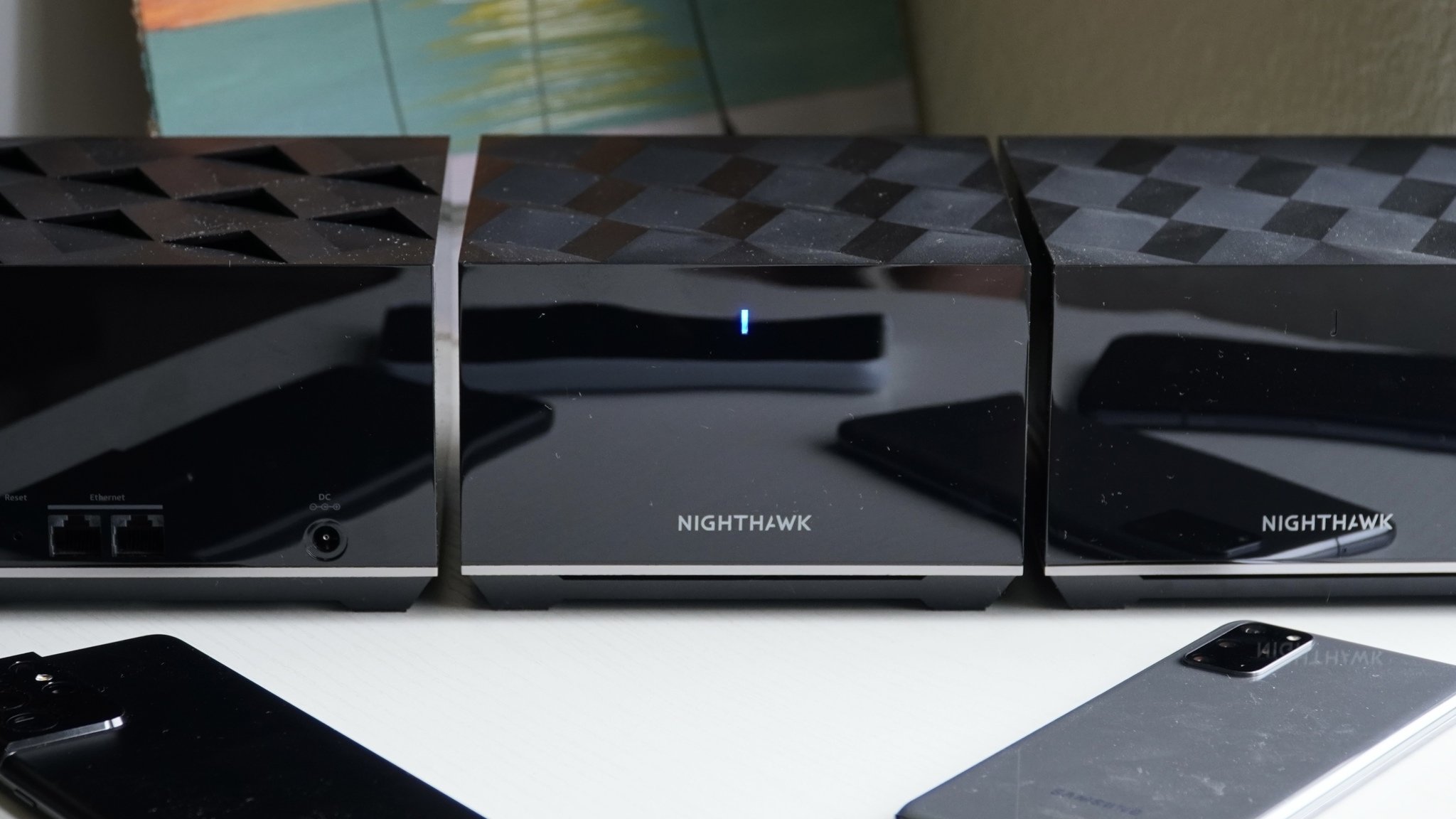
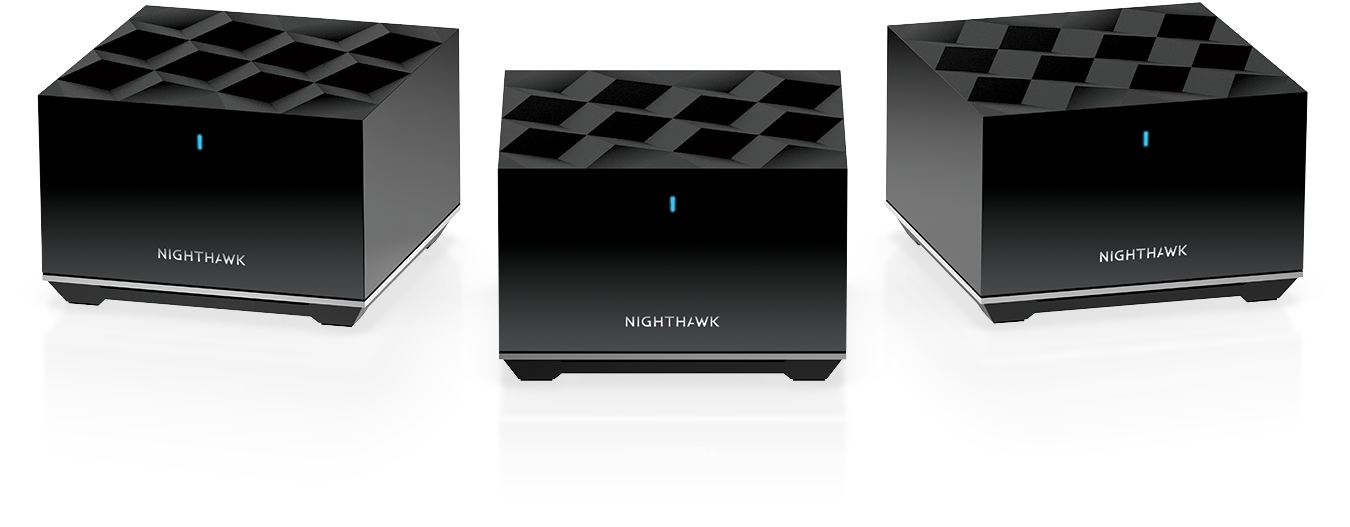
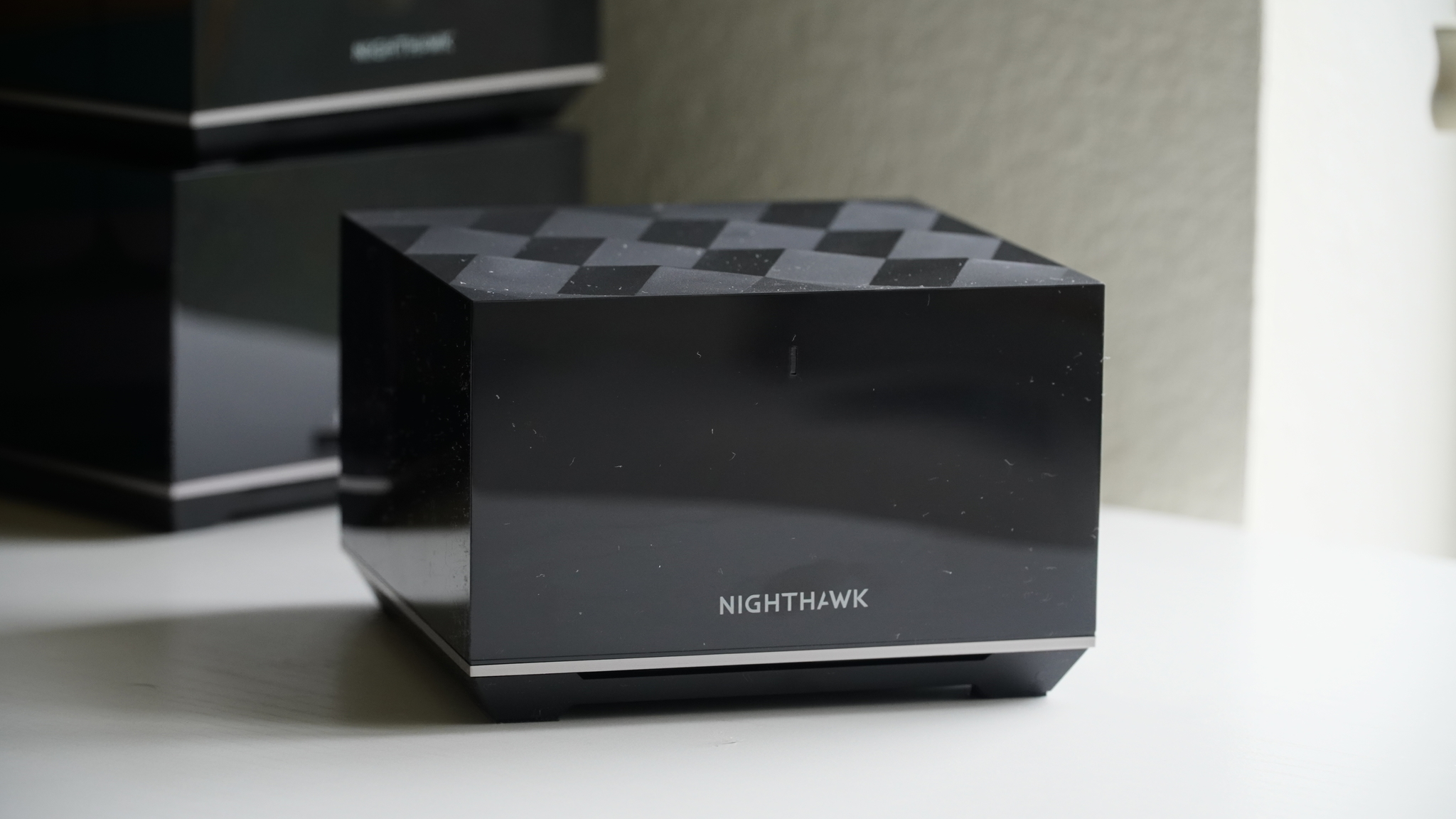
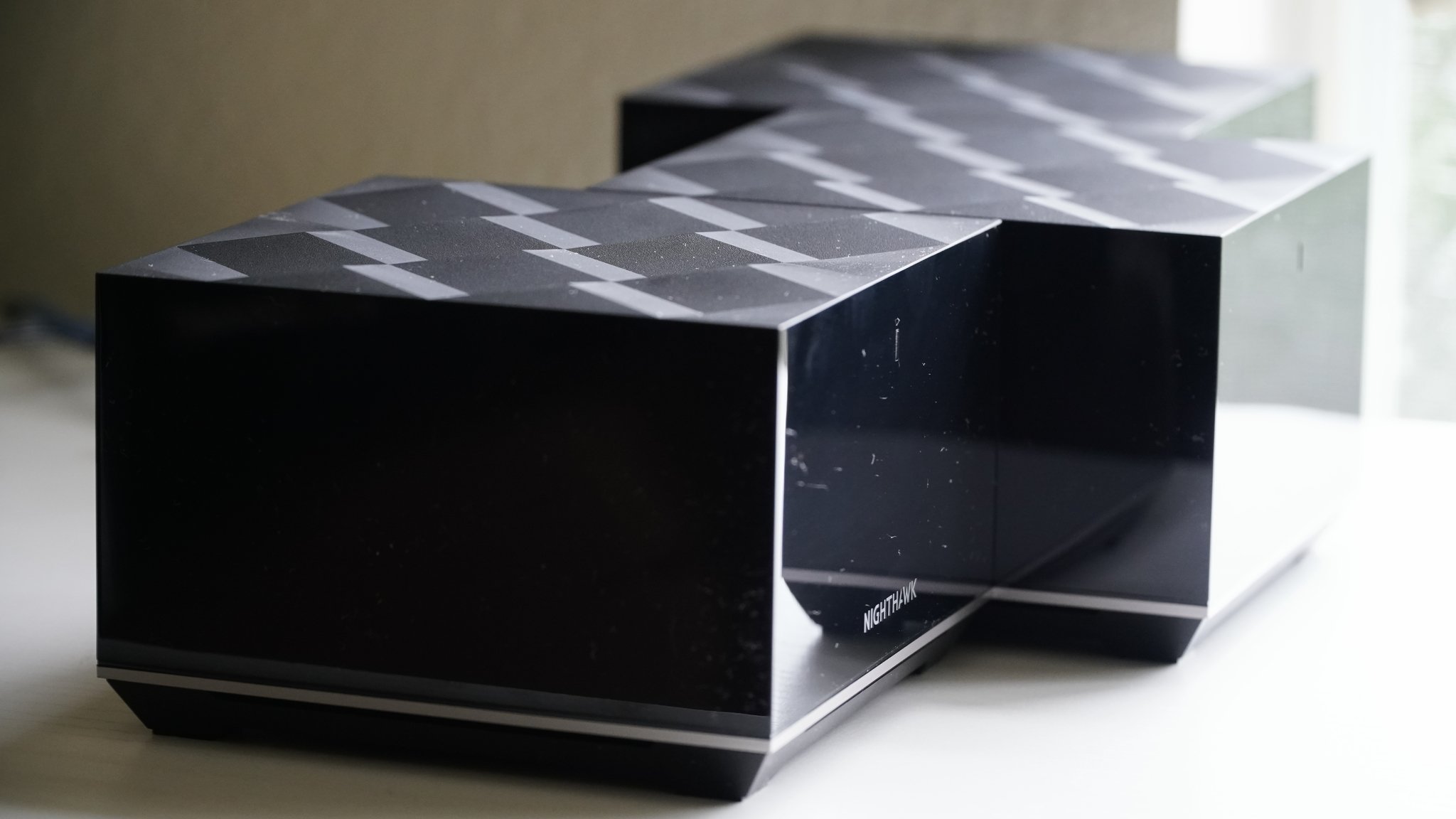
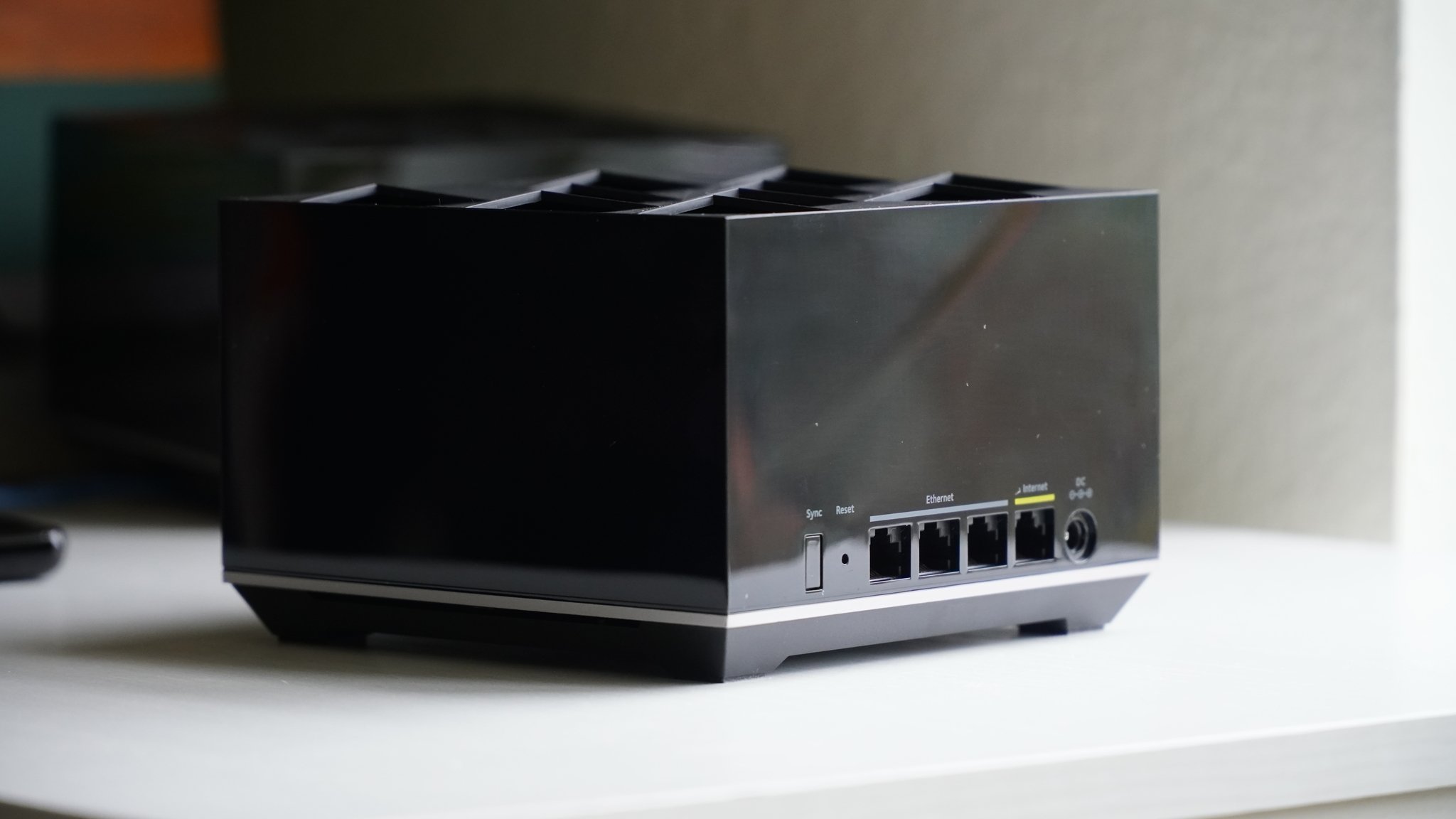
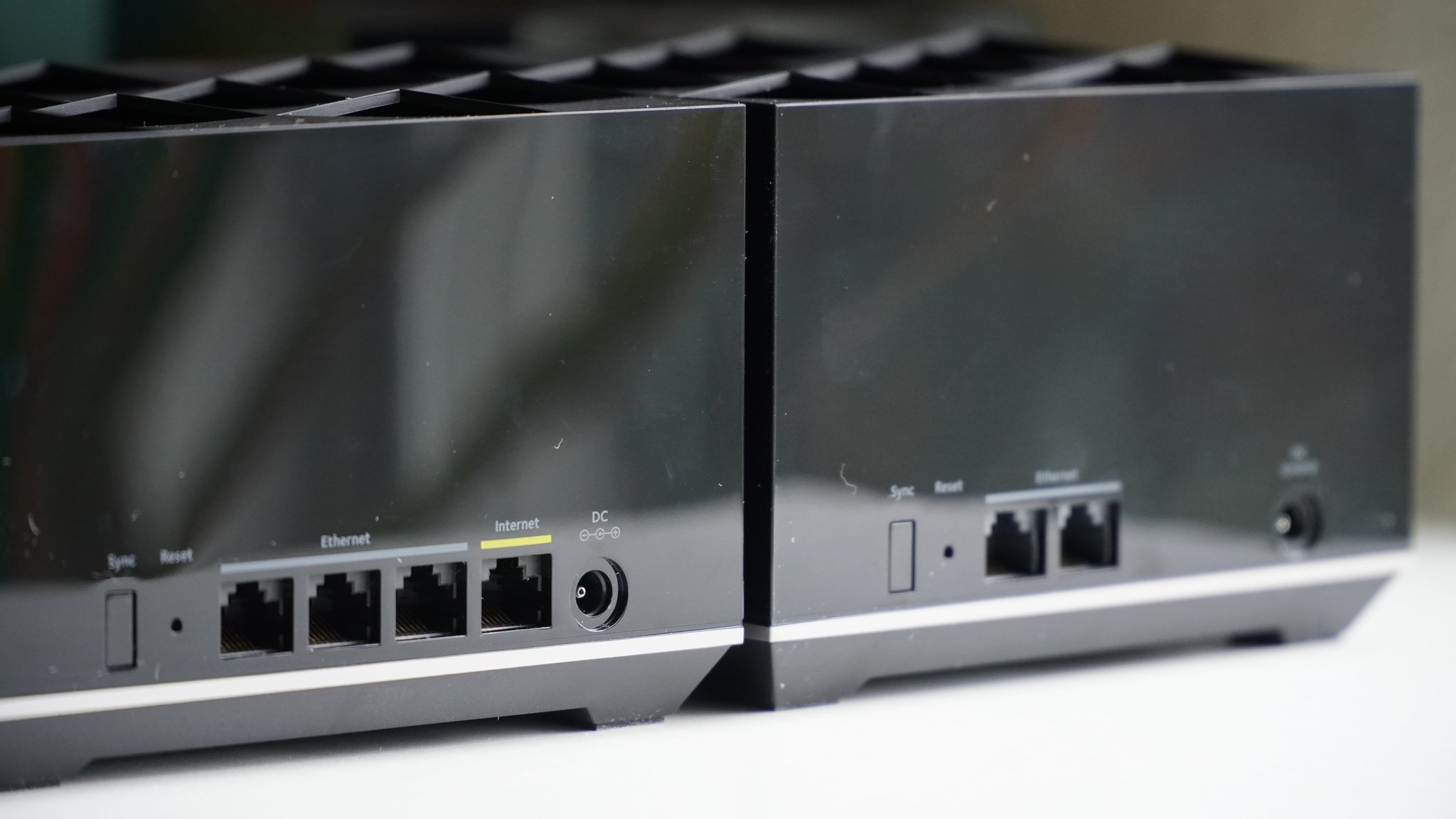
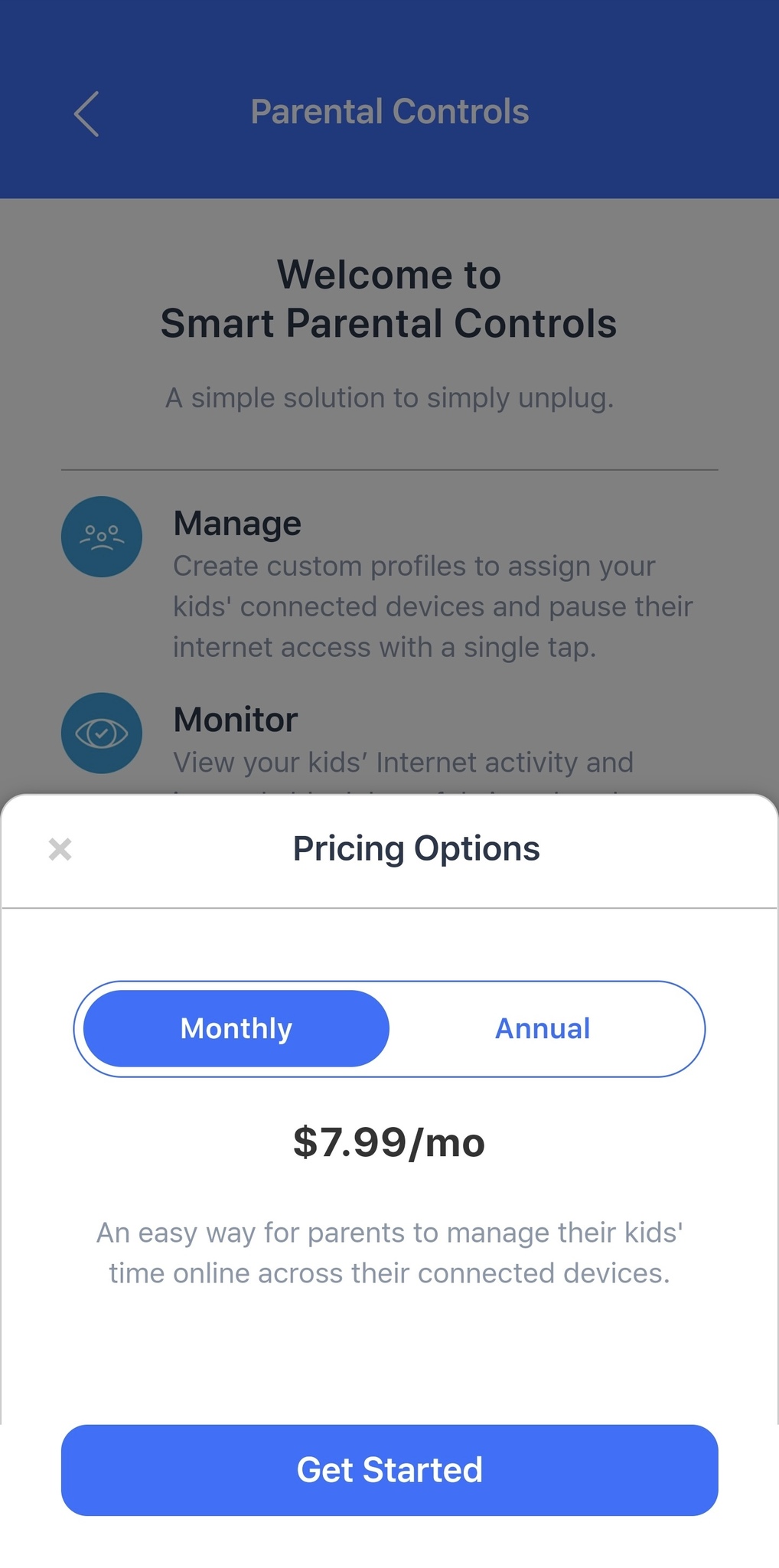
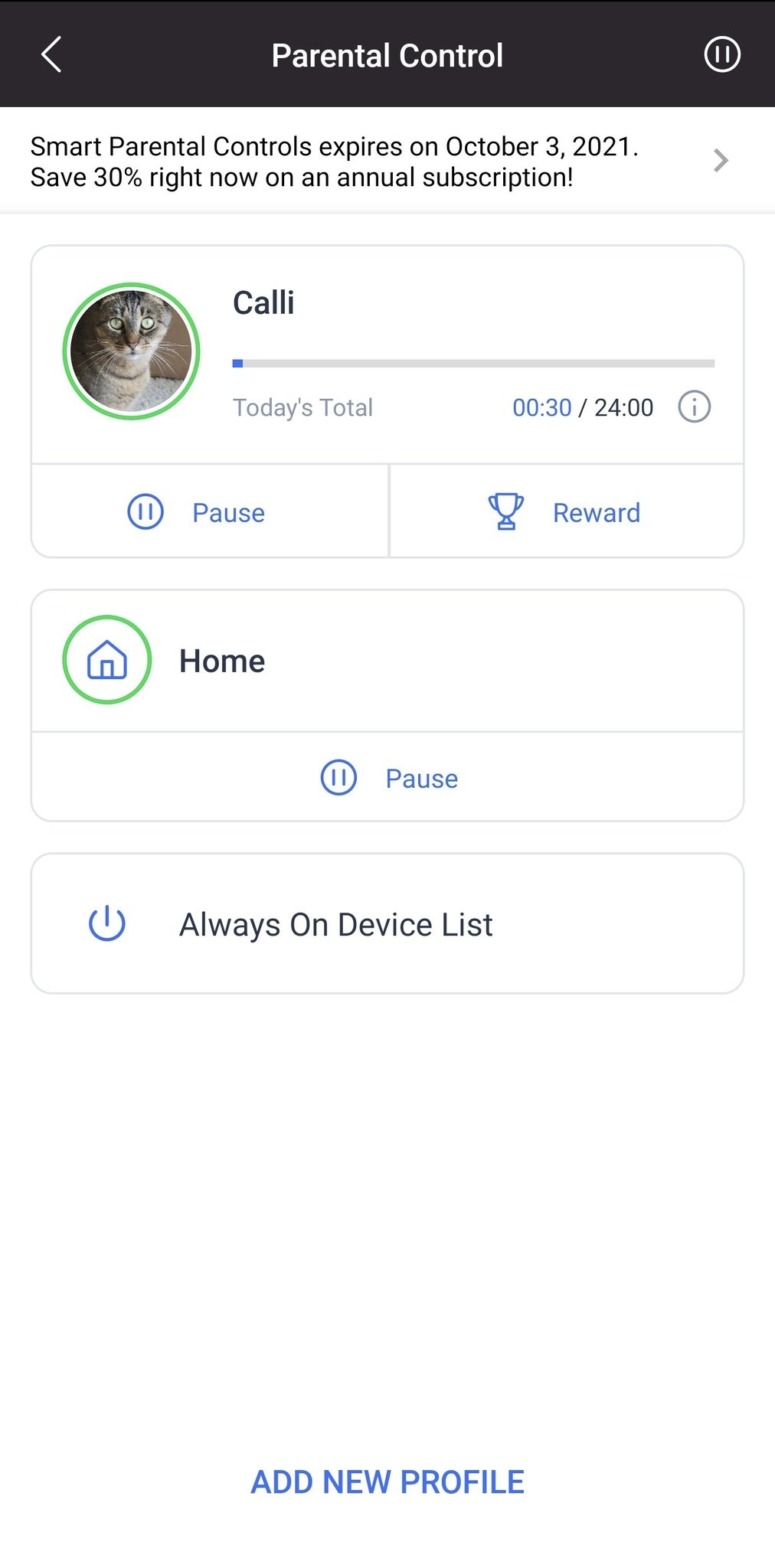
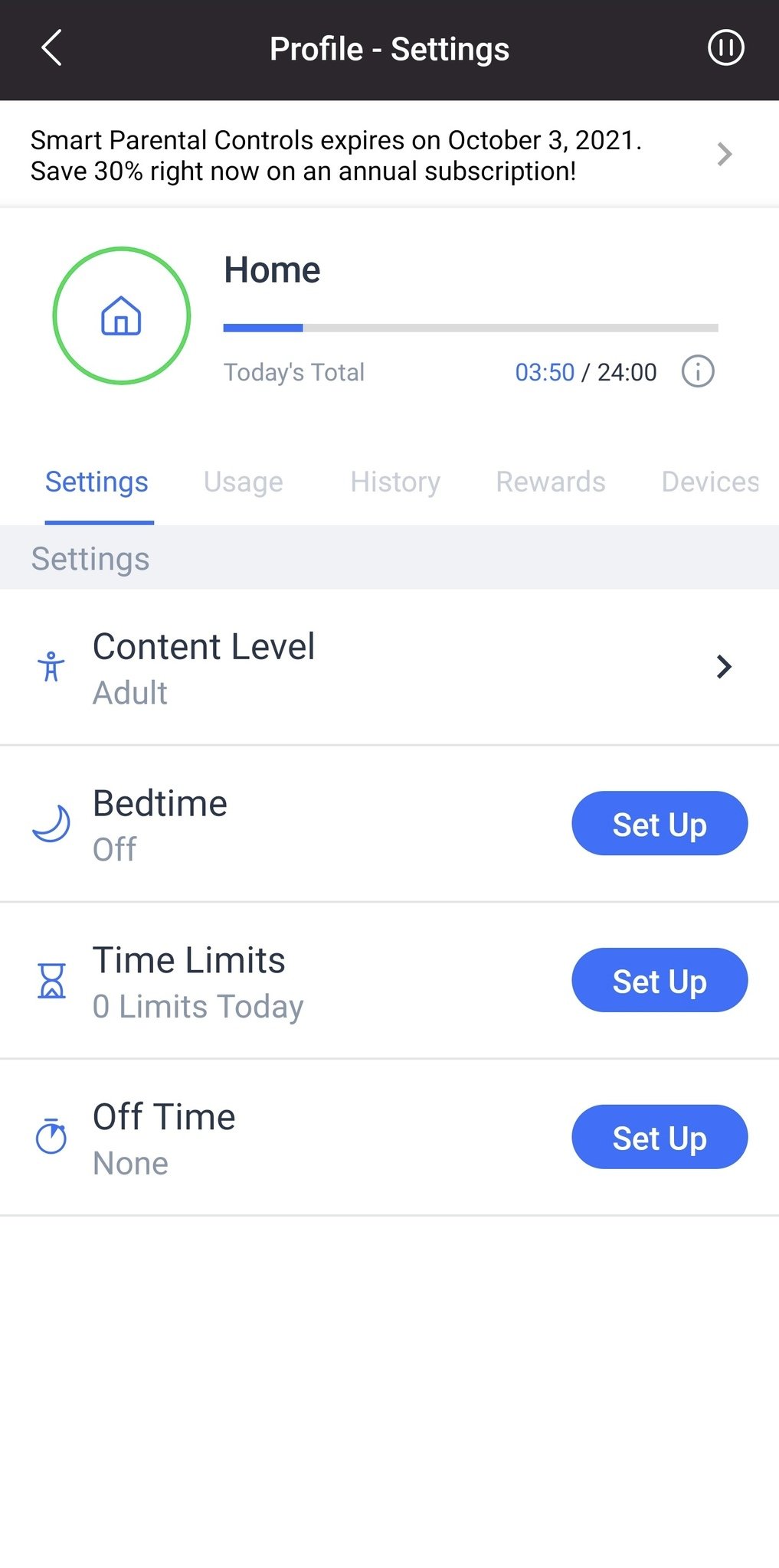
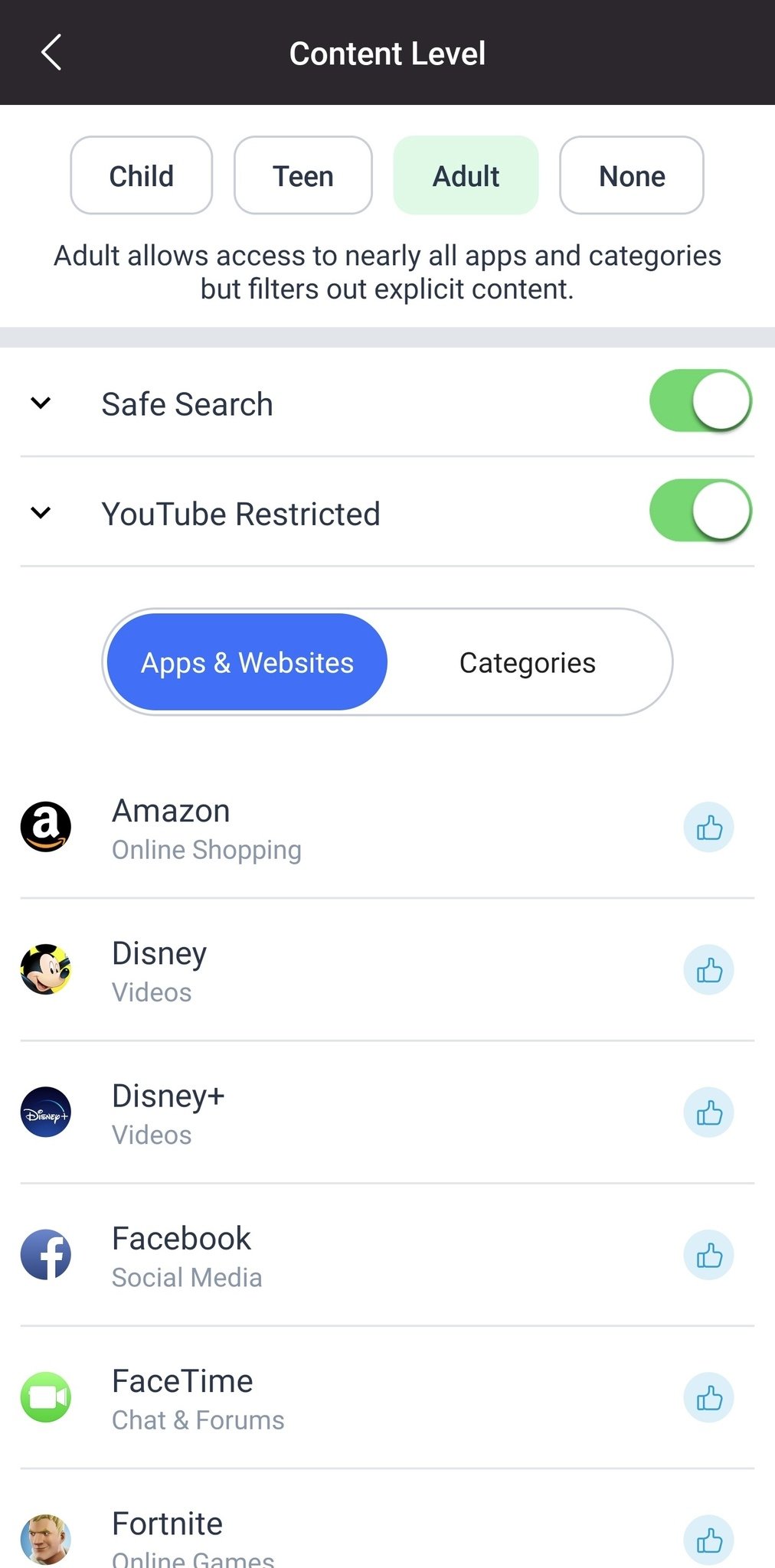
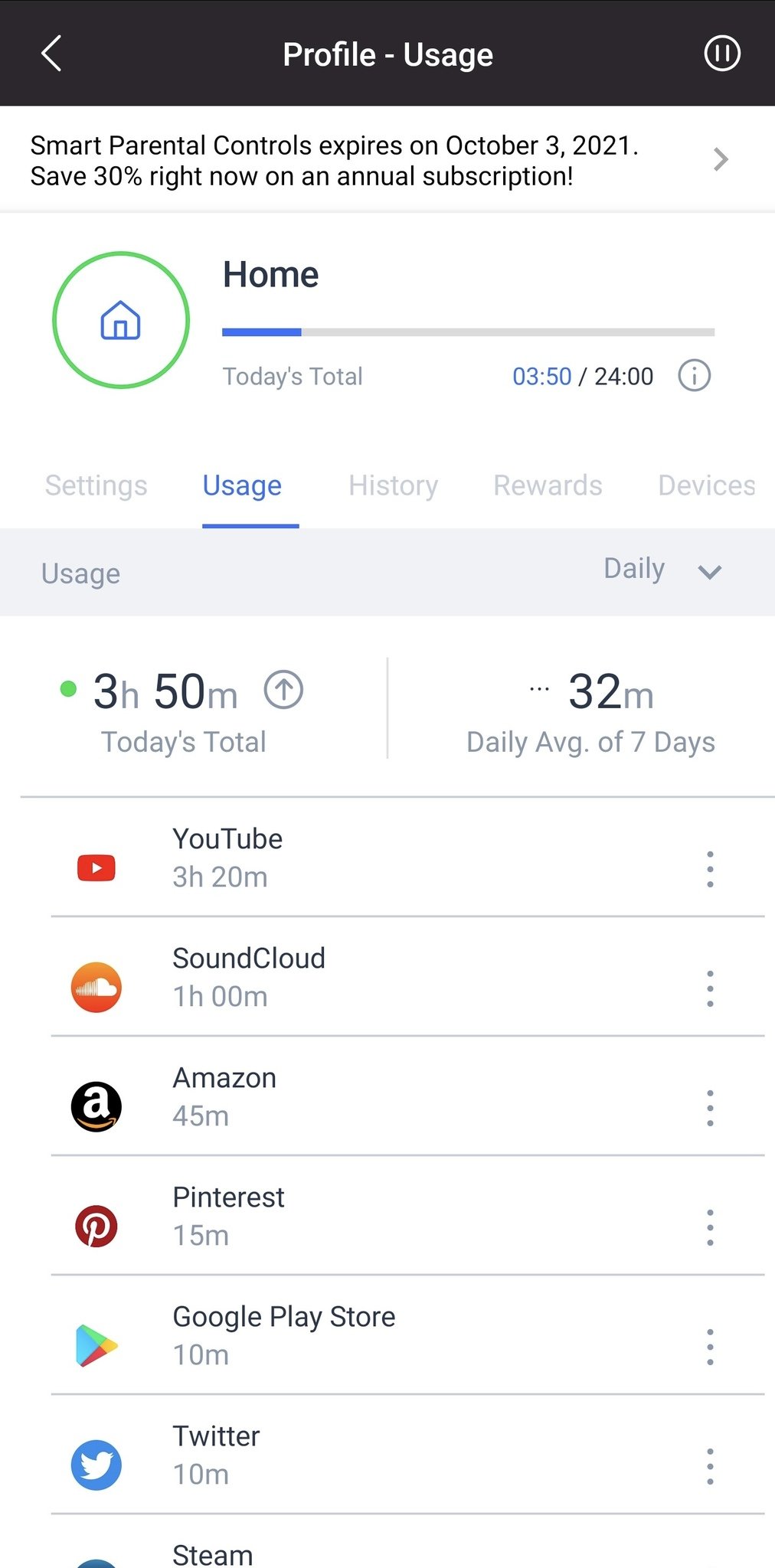
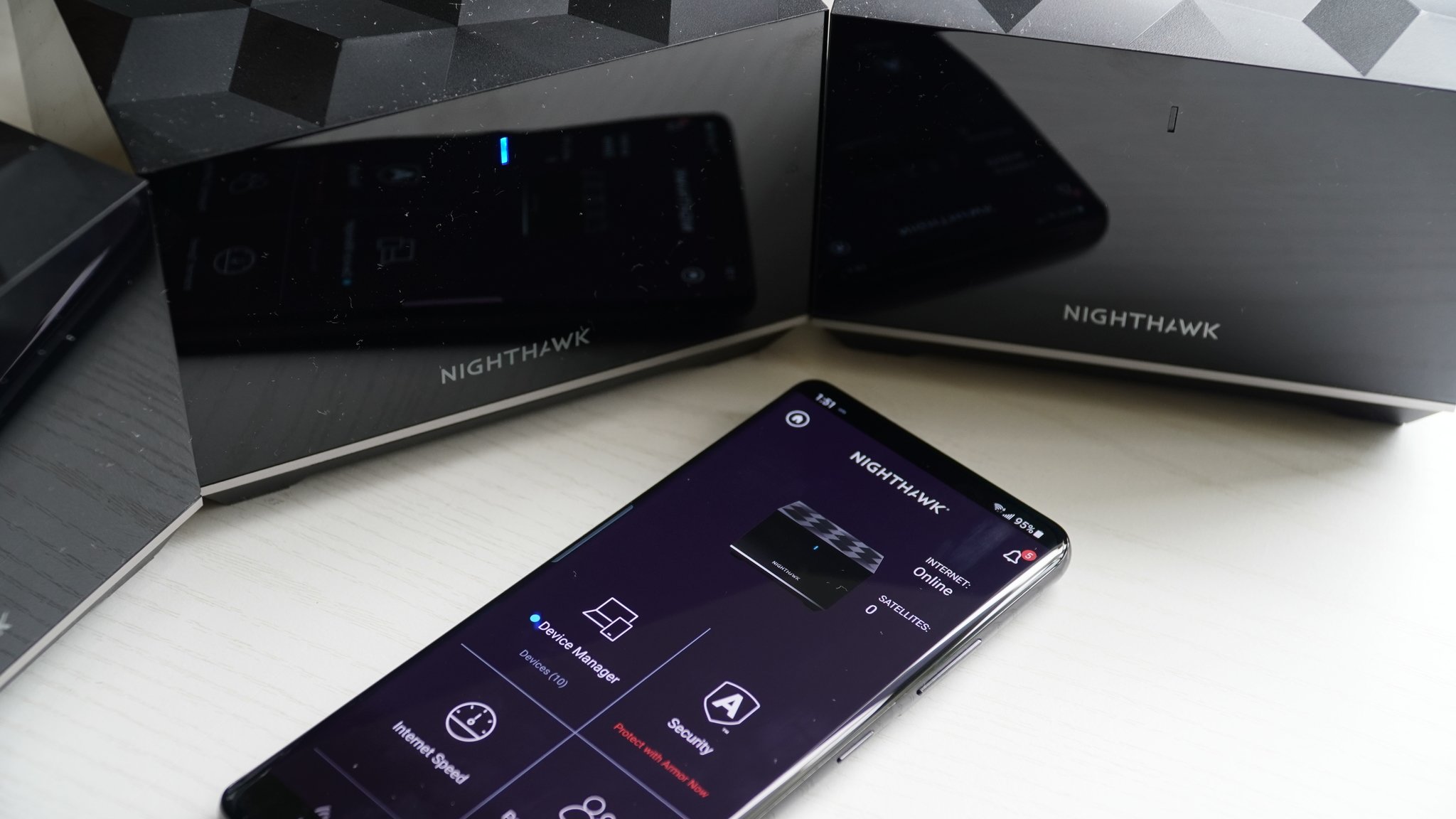
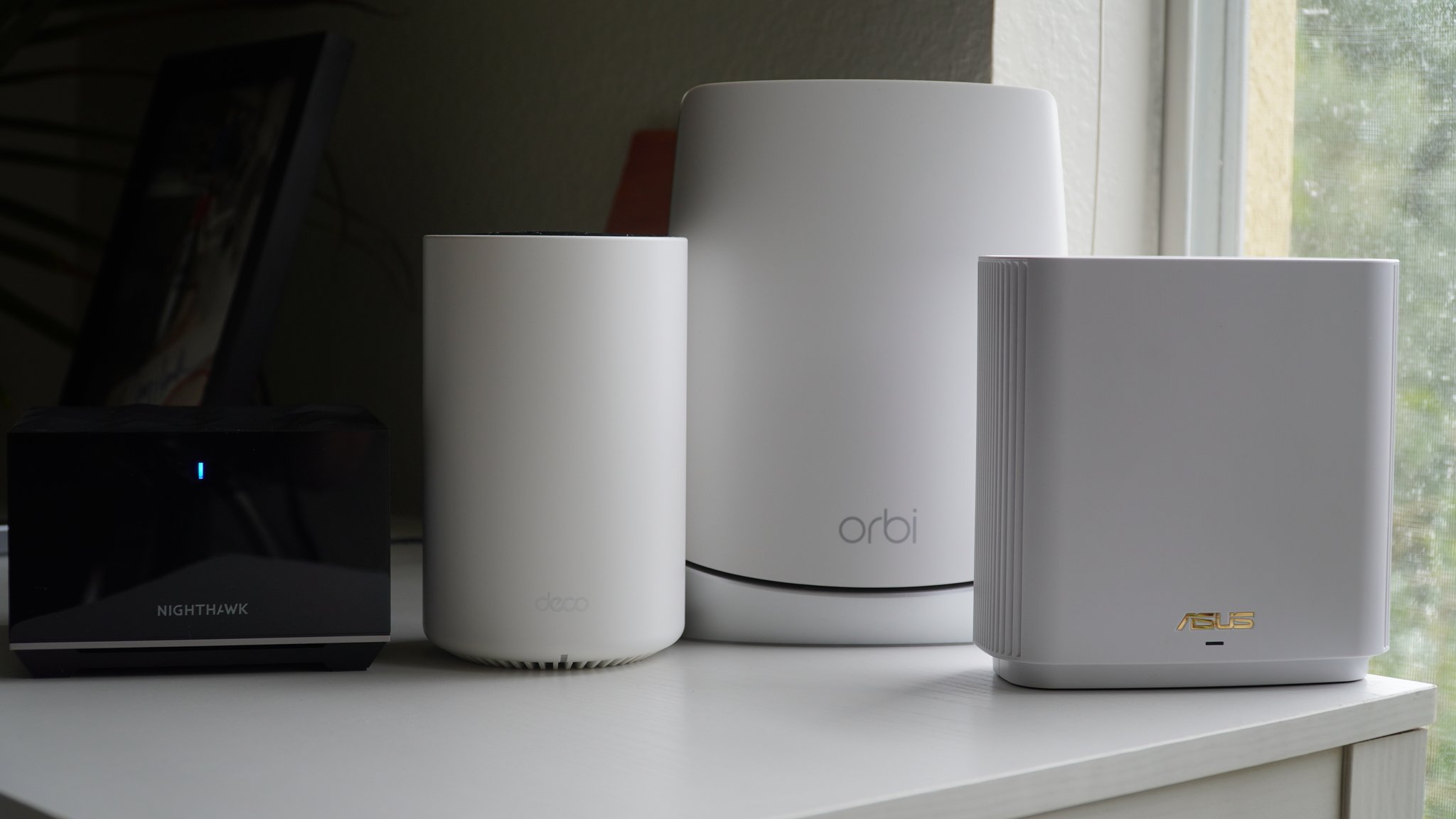
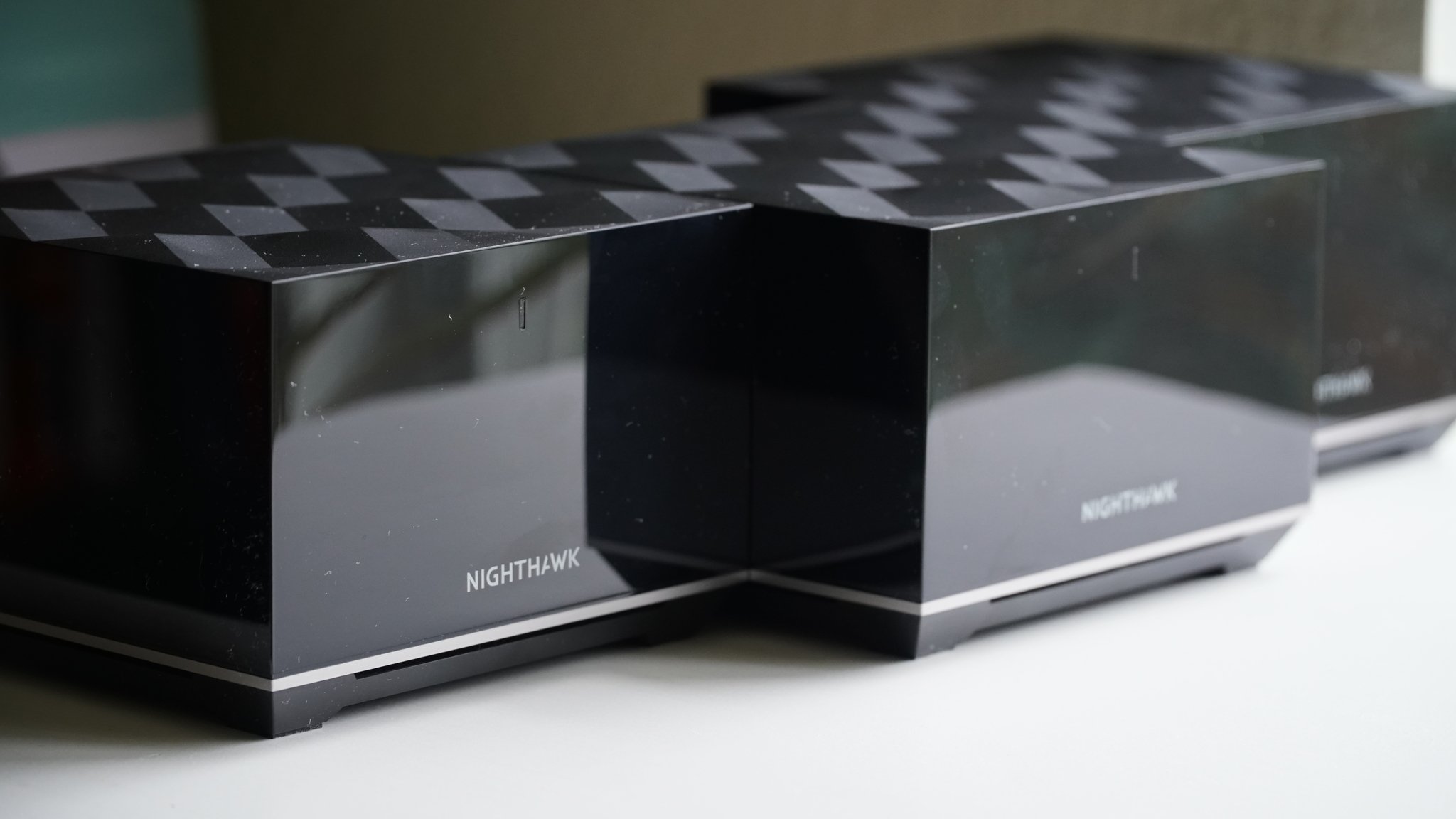
Post a Comment